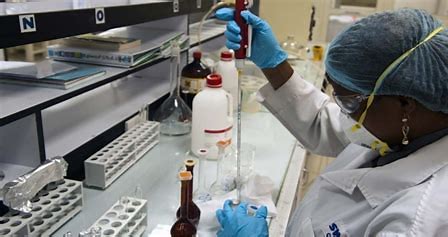Nigeria Teams Up with Swiss Experts to Launch Pharma Academy and Break Free from Drug Imports.
Nigeria Teams Up with Swiss Experts to Launch Pharma Academy and Break Free from Drug Imports.
By Achimi Muktar
In a bold move that could redefine the future of healthcare in West Africa, Nigeria has launched a Pharmaceutical Manufacturing Training Academy in partnership with Switzerland’s Empower School of Health, aiming to bridge its long-standing skills gap and drastically cut its reliance on imported drugs.
The initiative, backed by the Presidential Initiative for Unlocking the Healthcare Value Chain (PVAC), is not just a training hub—it’s a cornerstone in President Bola Tinubu’s grand vision to transform Nigeria into a self-sufficient pharmaceutical powerhouse.
The landmark agreement was sealed with a Memorandum of Understanding, marking a strategic alliance between Nigeria’s Federal Government and the Geneva-based health education powerhouse. The academy will focus on producing industry-ready professionals equipped to drive local drug manufacturing to new heights.
“The future of our health system depends not only on infrastructure and equipment but also on talent,” said Professor Muhammad Ali Pate, Coordinating Minister of Health and Social Welfare, at the official signing. “This academy will help us build that capacity.”
The stakes are high—and so are the ambitions. By 2030, Nigeria aims to locally manufacture 70 percent of its pharmaceutical products. By 2040, the goal is to produce 60 percent of its vaccines domestically. And this academy is poised to be the talent engine that powers those dreams.
With a global footprint spanning over 40 countries, Empower School of Health brings its expertise to develop a curriculum tailored specifically to Nigeria’s pharmaceutical manufacturing needs. The focus: real-world skills that prepare graduates to hit the ground running.
The momentum is already palpable. Over 70 pharmaceutical manufacturing companies have pledged their support, while five development finance institutions are unlocking new funding avenues for health entrepreneurs under the PVAC programme. Already, 22 major healthcare projects have taken off, and over 10 value chain segments are now active.
This academy is more than an educational institution—it’s a symbol of Nigeria’s transition from healthcare dependency to self-reliance, driven by local innovation, international collaboration, and a fresh generation of skilled professionals.
The message is clear: Nigeria is not just preparing for the future of healthcare—it’s building it.

















